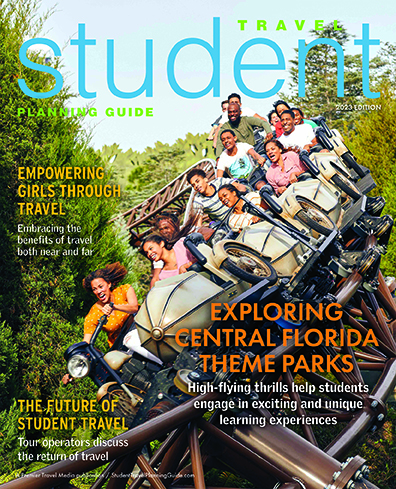Whether it’s your first time recruiting a parent chaperone for your next field trip or your 20th, this complete guide has you covered with all the do’s and don’ts.
Field trips are often some of the most anticipated days of the school year for students but can sometimes be a source of anxiety for teachers and organizers. We get it; finding a great chaperone isn’t easy. And then once you do, what are some of the things they should do to ensure everyone has a terrific, and most importantly, safe trip?
Plan a better field trip for everyone by employing parent chaperones and watch your hectic day transform into an unforgettable experience not only for students, but for any adults who tag along for the ride. Here, we offer some do’s, don’ts, and a few tips to get the most out of your next field trip.
RECRUITING CHAPERONES DO’S
- Start recruiting early as most parents’ schedules are busy, especially during the week. For those who have trouble finding enough chaperones, your short-notice requests may be the culprit.
- Send out a mass email or letter home with students with the date of the field trip far in advance. This allows parents to take off work and plan accordingly (and forces you to start organizing ahead of time).
- To encourage parent participation, do describe what the trip entails in detail.
- Know what qualifications and expectations you have in advance which will eliminate any hard feelings while ensuring the best possible trip experience for everyone.
- Highlight the educational and recreational benefits of the event and how the parents can be directly involved in their child’s learning. Parents are more likely to sign up to be a chaperone if they realize that their presence will make a positive impact on their child’s experience.
TEACHERS DO’S FOR CHAPERONES
- Make sure your chaperones are dressed appropriately for the trip and remind them to arrive with all the necessary field trip essentials (including lunch, if not provided).
- Print out the schedule/itinerary for the day, as well as any maps or directions needed.
- If students are required to complete an assignment during the field trip, provide chaperones with that homework.
- Provide chaperones with your contact information in case of emergency.
- Provide chaperones with a short description of each child. Student’s name, hair color, and color of clothing will all help chaperones keep an eye on each child and better track down a lost student.
- Do make chaperones feel more welcome by introducing them to each other and encouraging parent involvement once you reach your field trip destination – parents should not be bystanders.
- Post-trip be sure to properly thank your chaperones by sending a thank-you note home with their child within a week after the outing along with any photos that were taken. If time allows, ask each student to write a letter thanking their group’s chaperone leader and describing their favorite memories from the day. Thoroughly thanking each parent chaperone ensures that they don’t feel like mere babysitters. Chaperoning should be more than just herding students around, it should be a way for parents to connect with their child’s education and experience the interactive learning from which their child benefits.
TRIP CHAPERONE DO’S
- Ensure there are enough adult chaperones going with you. The number needed relates directly to how many students are going, but there should never be less than two adults per group.
- Speaking of numbers, do make sure to keep groups as small as possible. Even the most organized of chaperones can feel a little overwhelmed with a herd of children to look after, especially if the field trip venue is large and crowded. Ease parents’ worries and make it easier on everyone by keeping groups to under 10 students per chaperone.
- Assign parent chaperones to groups with their child – this may seem obvious, but parent chaperones should lead groups that include their own child to make the day more fun for them both. Not to mention, children are more likely to behave when their parents are around.
- Within groups, assign student partners to increase students’ accountability and minimize the chance of losing someone along the way.
- When taking attendance throughout the day, do ask students to give their partner a high-five – that way, a child’s absence is more likely to be noticed.
- If the trip is mixed gender, do make sure there is at least one adult for each sex.
DON’T
- When choosing chaperones, the most important piece of advice to remember is don’t worry about hurting feelings. Parent chaperone choices should be based on which individuals would make the best chaperone – not which parent emails you the most or the nicest parent of the bunch.
TIPS
- The safety of the group and the logistics of the trip should be the top priority, so the most responsible parents are the best choices as well as the parents who maintain a positive attitude no matter the situation. If all willing chaperones are equally qualified, picking names out of a hat is the best method.
- Just like in the theater, it’s a good idea to have an ‘understudy’ ready to step in in case a scheduled chaperone can’t make the trip.
CHAPERONE RECRUITING CHECK LIST:
- Have experience working with adolescents
- Be willing to help plan and facilitate activities
- Able to attend all pre-tour meetings
- Assist with documentation needs such as passports and visas
- Prepared to spend money on items not covered in the tour
- Be able to chaperone small groups of students on flights or tours
- Be able to follow all tour guidelines in respect to student expectations
CHAPERONE TRIP RESPONSIBILITY CHECK LIST:
- Be on call 24/7 in case of emergency
- Assist with student disciplinary matters
- Responsible for small groups of students throughout the tour
- Help facilitate curfews and room checks at night
- Stay behind if a student is too ill to participate in the day’s activities
- Accompany a student home in case of severe illness
- Make sure students are ready at the proper time
- Monitor activities during free time
- Willingness to accompany students on free day excursions
- Ability to take over the group if the lead teacher cannot complete the tour
If you’d like to receive more news about the student travel industry, along with plenty of student travel ideas, be sure to Subscribe to Student Travel Planning Guide for FREE






